Computational Fluid Dynamics (CFD) Blog Posts
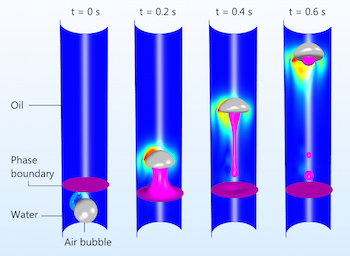
Simulate Three-Phase Flow with a New Phase Field Interface
The Three-Phase Flow, Phase Field interface, used for modeling separated three-phase flow, computes the shape of the interfaces between the 3 phases and accounts for interactions with walls.
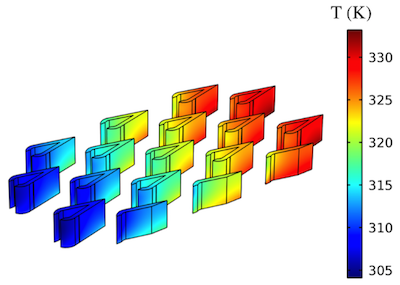
Analyzing a Novel Pin Fin Microchannel Design with Simulation
Researchers at the Rensselaer Polytechnic Institute and the University of Central Florida created a novel pin fin design and analyzed its heat transfer efficiency with COMSOL Multiphysics®.
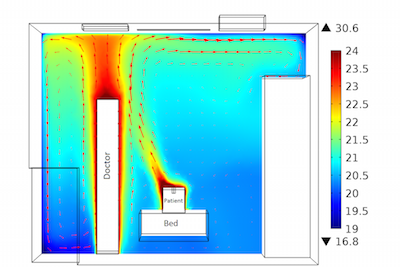
Preventing Airborne Infection with CFD Modeling
Healthcare-associated infections affect millions of people around the globe. Airborne bacteria is one cause of patient infections that can be prevented with efficient ventilation system designs.
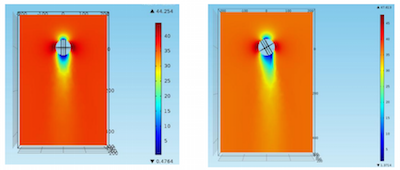
Simulating the Art of Swing Bowling in Cricket
The swing bowling move in cricket is as much an art form as it is an athletic feat. Researchers at the COMSOL Conference 2015 Boston simulated the fluid mechanics of conventional swing bowling.
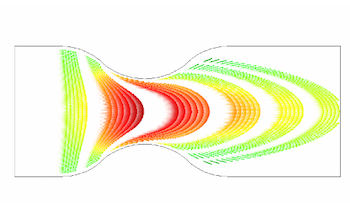
Exploring the Venturi Effect
The Venturi effect: As a fluid flows through a constructed area of a pipe, its velocity increases and its static pressure decreases. Learn more about this effect and its application areas.
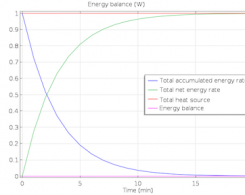
Methods for Evaluating Mass and Energy Conservation
Ever wonder how to compute the mass conservation of a fluid flow simulation, or the energy balance of a conjugate heat transfer simulation? If so, keep reading >>
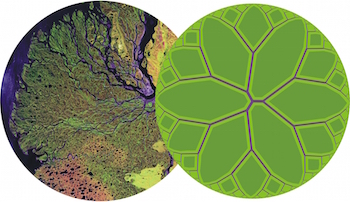
Evolving into a Better Design: Humans and Technology as One
Read about how the concept of constructal law applies to the joint evolution of humans and technology in this blog post about a keynote talk from the Conference of the Academia Europaea 2015.
Simulating Viscous Heating in a Fluid Damper
Fluid dampers are able to dissipate mechanical energy into heat through a process called viscous heating. You can simulate this process to optimize your fluid damper designs.
